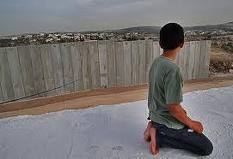Multiculturalism is dead
One of the things I find difficult to understand is Christians who rail against multiculturalism and religious pluralism as if these were self-evidently evil phenomena.
The Western Confucian: I Read the News Today, Oh Boy recently juxtaposed two items that illustrate the difficulty
Sandro Magister on an unenviable position — Christians in the Middle East. Crushed between Islam and Israel.
"Somebody eventually had to say it — and German chancellor Angela Merkel deserves credit for being the one who had the courage to say it out loud," says Thomas Sowell; "Multiculturalism has 'utterly failed'" — The Multicultural Cult.
It is a commonplace that multiculturalism has failed in the Near and Middle East. The Wars of the Yugoslav Succession 20 years ago made that pretty clear, and introduced us to the phrase that describes the opposite of multiculturalism, namely "ethnic cleansing". If, as many people seem to believe, multiculturalism is a Bad Thing, then the way to undo it is by ethnic cleansing, and as the other article referenced by The Western Confucian points out, it has been going on for most of the 20th century: Christians in the Middle East. Crushed between Islam and Israel:
The exodus of Christians from those lands is an important part of this movement. But it is not a new phenomenon. During the first half of the twentieth century, the extermination and expulsion from Turkey of the Armenians, and then the Greeks, were of colossal proportions. Today the exodus continues from several places, and in different degrees. The fact is that in comparison with the twelve million faithful of the ancient Eastern Churches who today live between Egypt and Iran, there are now about seven million living elsewhere.
 And that, of course, is where multiculturalism meets religious pluralism, because the process involves religious cleansing as well, and the erection of barriers between ethnic and religious groups to try to make sure that they never meet or mingle.
And that, of course, is where multiculturalism meets religious pluralism, because the process involves religious cleansing as well, and the erection of barriers between ethnic and religious groups to try to make sure that they never meet or mingle.
One of the things that has puzzled me over the last 20 years or so is that just at the point where we in South Africa had finally realised that apartheid had failed, many people in Europe and the Near and Middle East were eagerly embracing it and declaring that multiculturalism has failed.
In South Africa people began to talk about "the rainbow nation" and "many cultures, one nation", whereas in other places they were erecting new apartheid walls to revive the Verwoerdian dream of separate development, where the development is a "nice to have" optional extra, the sugar coating on the pill, but the separation is not negotiable.
And Angela Merkel was not the first German chancellor to come to the conclusion that multiculturalism had failed. One of her predecessors, Adolf Hitler, came to the same conclusion. Austria was a multinational and multicultural empire, and the German nationalist element saw their task as a struggle to maintain their national language and traditions, contradicting what was said by non-German teachers, and wearing emblems and colours of the German Reich.
…at a comparatively early age I took part in the struggle which the nationalities were waging against one another in the old Austria. When meetings were held for the South Mark German League and the School League we wore cornflowers and black-red-gold colours to express our loyalty. We greeted one another with Heil! and instead of the Austrian anthem we sang our own Deutchland ueber alles, despite warnings and penalties. Thus the youth were educated politically at a time when the citizens of a so-called national State for the most part knew little of their own nationality except the language (Hitler 1939:24).
I suppose that part of the difference is cultural, and has to do with the kind of society one grew up in.
I grew up in South Africa, which has been a multicultural society since human history began, and yet the government was determined to undo this, and separate the cultures through the implementation of the policy of apartheid. This involved ethnic cleansing on a massive scale, with some 3-4 million people being uprooted from their homes and made to move somewhere else so that each part of the country could be ethnically pure and monocultural. Of course much of the history of South Africa is made up of the story of clashes of different cultures. The Nationalist government claimed that the only way to avoid the clashes was to separate the cultures. Not only was it impossible for people to learn to get along with others who were different, it was regarded as positively evil that they should try to do so. And this, it seems to me, was in direct contradiction to the Christian faith. As Fr Thomas Hopko puts it (yes, I've quoted this before in this blog, and will probably quote it again, because I believe it is true)
Tolerance is always in order when it means that we coexist peacefully with people whose ideas and manners differ from our own, even when to do so is to risk the impression that truth is relative and all customs and mores are equally acceptable (as happens in North America).Tolerance is never in order when it means that we remain idle before wickedness which harms human beings and destroys God's creation.
To be tolerant is to be neither indifferent nor relativistic. Neither is it to sanction injustice or to be permissive of evil. Injustice is intolerable and evil has no rights. But the only weapons which Christians may use against injustice and evil are personal persuasion and political legislation, both of which are to be enacted in an atmosphere of respect. While Christians are permitted under certain conditions to participate in police and military actions to enforce civil laws and to oppose criminality, we may not obey evil laws nor resort to evil actions in defence of the good. This means that Christians are inevitably called to suffer in this age, and perhaps even to die. This is our gospel, our witness and our defence.
Father Tom puts his finger on precisely what it was that motivated Christians in South Africa to struggle against apartheid, and to see it as a struggle against evil.
 But apartheid was not just a war against multiculturalism, it was a war against religious pluralism. There were three favoured religious groups, the Dutch Reformed Churches — the Nederduitse Gereformeerde Kerk (NGK), the Nederuitsch Hervormde Kerk (NHK) and the Gereformeerde Kerk (Doppers). They had their differences, theological, political and cultural, but generally the government could count on them to support its apartheid policies and to expel dissenters from their midst. The NGK was given free rein in the Kaokoveld are of Namibia, and their mission at Orumana flourished. Anglicans, however, were persecuted and obstructed by government officials at every turn. One Anglican evangelist living there, Thomas Ruhozu, once made the 500 mile journey to Windhoek to ask the Anglican synod, meeting in Windhoek, for help for the small but growing Anglican flock in the Kaokoveld. But the government refused permits for outsiders (other than NGK missionaries and government officials) even to visit the place, and controlled access on all the main roads.
But apartheid was not just a war against multiculturalism, it was a war against religious pluralism. There were three favoured religious groups, the Dutch Reformed Churches — the Nederduitse Gereformeerde Kerk (NGK), the Nederuitsch Hervormde Kerk (NHK) and the Gereformeerde Kerk (Doppers). They had their differences, theological, political and cultural, but generally the government could count on them to support its apartheid policies and to expel dissenters from their midst. The NGK was given free rein in the Kaokoveld are of Namibia, and their mission at Orumana flourished. Anglicans, however, were persecuted and obstructed by government officials at every turn. One Anglican evangelist living there, Thomas Ruhozu, once made the 500 mile journey to Windhoek to ask the Anglican synod, meeting in Windhoek, for help for the small but growing Anglican flock in the Kaokoveld. But the government refused permits for outsiders (other than NGK missionaries and government officials) even to visit the place, and controlled access on all the main roads.
In the Near and Middle East the situation of Christians is even worse. The book to read is:
 From the Holy Mountain by William Dalrymple
From the Holy Mountain by William Dalrymple
My rating: 4 of 5 stars
A travellers tale giving an idea of the condition of Christianity in the Near and Middle East at the end of the 6th century and the end of the 20th century. It's a good introduction for those who know little about the topic, though of course the situation has worsened considerably since the US invasion of Iraq in 2003.
I can only suppose that people in monocultural countries see things very differently, though I doubt that there is such a thing as a genuinely monocultural country. To be monocultural a country would have to be small and fairly isolated. Iceland, perhaps. The Faroe Islands, the Falkland Islands, perhaps Lesotho and Swaziland.
I try to imagine what might happen if the idea that multiculturalism and religious pluralism were evil actually caught on. Past experience of the apartheid era makes it not too difficult to imagine. It would require a new Hitler to declare that one culture was dominant, and that all others must either assimilate, get out, or perish. If that were to happen, one of the first things to be banned would probably be Orthodox Christianity. And what would happen thereafter would depend on which culture became dominant. If Xhosa culture became dominant, perhaps things like male circumcision would become compulsory; if Zulu culture became dominant, then perhaps the practice would be forbidden. No, I really don't want to go there. And I find it very difficult to understand people who do.











